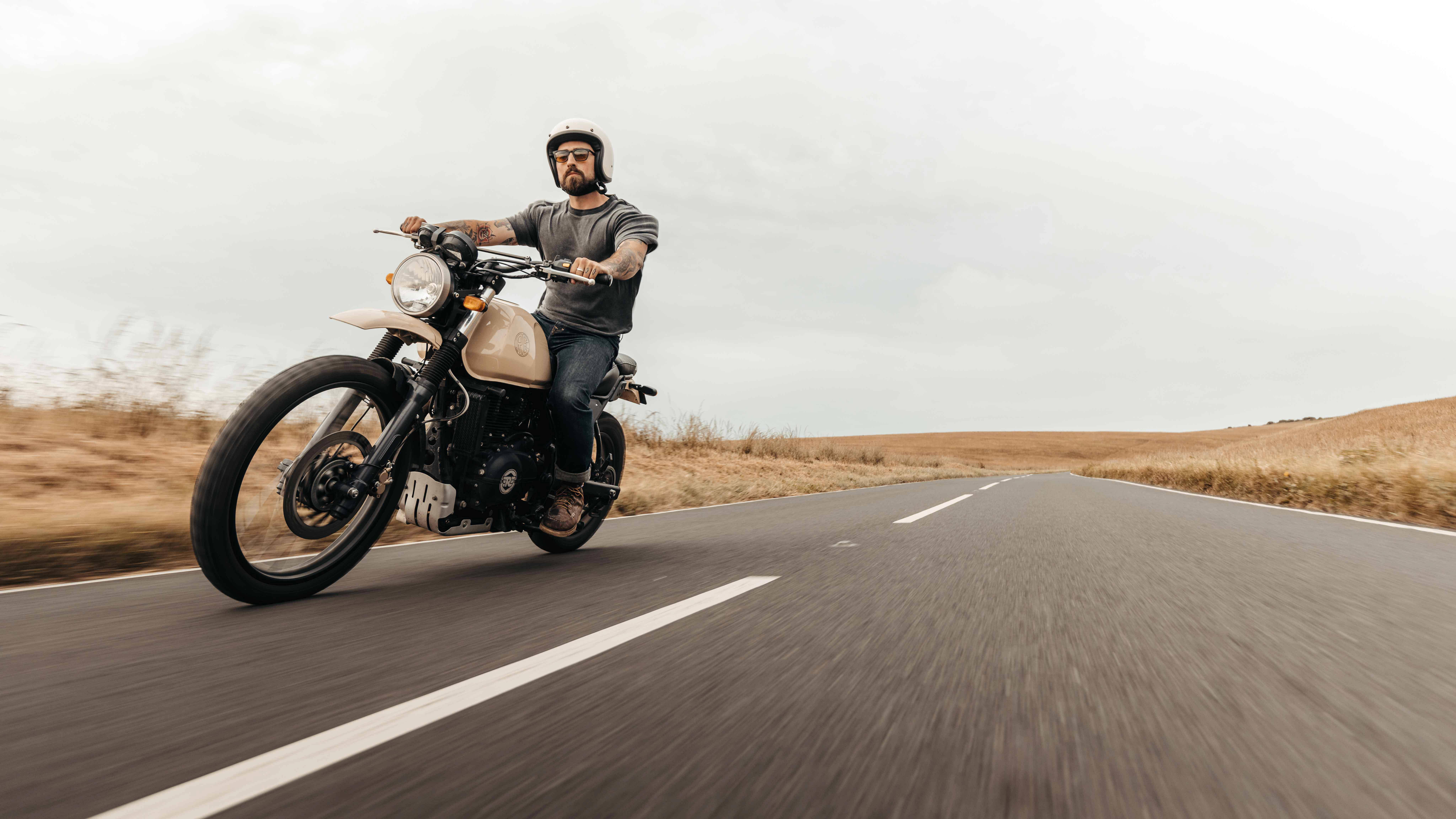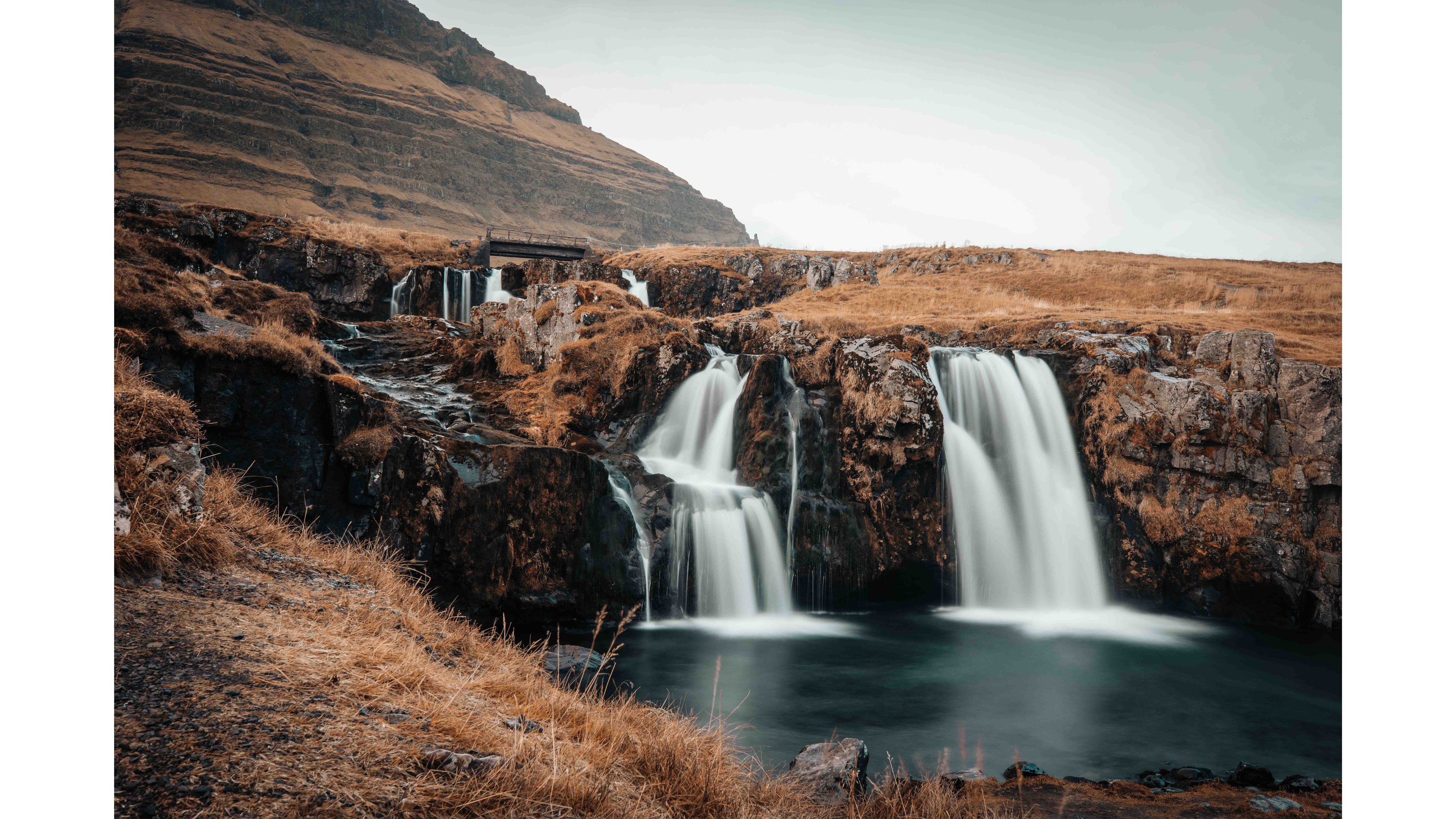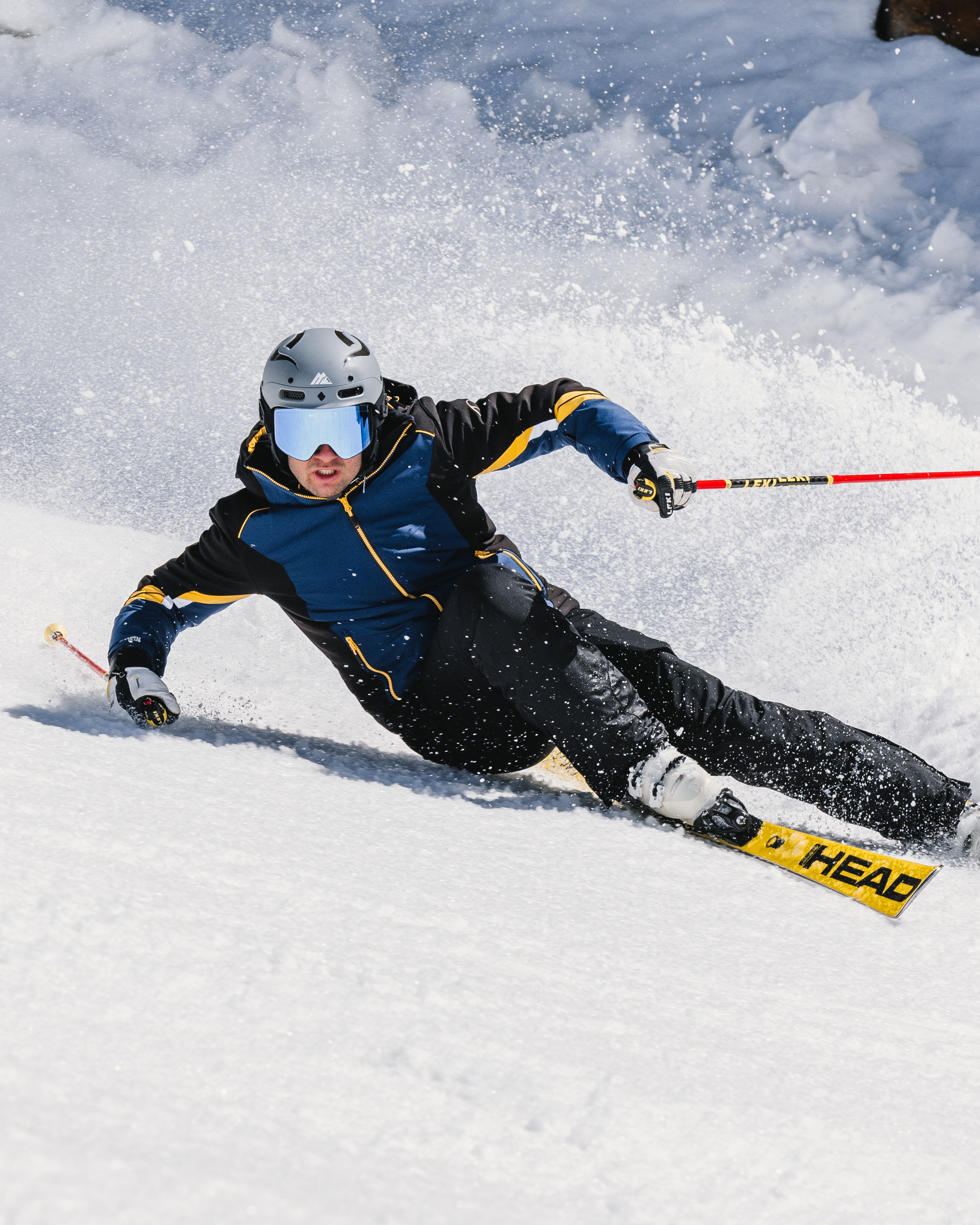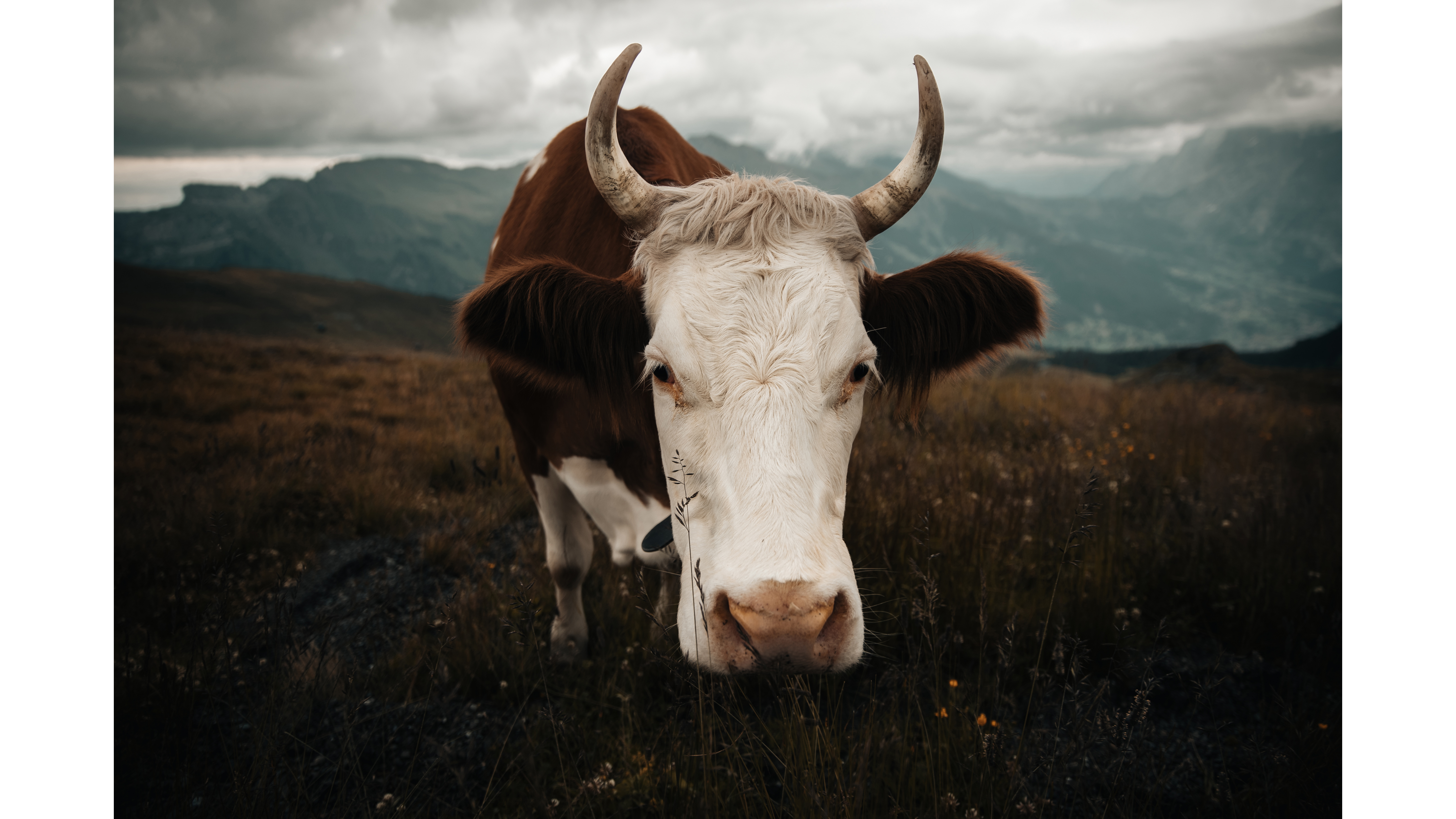
Content creation has gradually been revolutionizing the world of commercial photography and marketing. It’s transformed from a pool of images on platforms like Instagram and 500px into a dynamic and multifaceted art form. Having started out directing social media campaigns, photographer and videographer Chris Priestley is a full-time creator who harnesses the power of Canon cameras to bring his ideas to life.
You need energy, passion and a multi-skilled approach to succeed online in the crowded digital era, but Chris is careful with what he posts, usually opting for quality over quantity. Self-taught and seemingly self-driven, he now shoots white-label campaigns for massive global brands and has already worked with (and for) Starbucks, Red Bull and Aston Martin.
Blending a mixture of editorial and commercial genres, Chris’s luxury lifestyle content often receives millions of views, but his approach and budgets can be impressively low-key. Read on to discover the evolution of Chris’ career, and how switching from DSLR to mirrorless has been pivotal in helping him to create dramatic and compelling narratives that keep drawing audiences and clients back for more.
Hey Chris. How would you describe your work?
It’s geared more towards social-first platforms, so my work needs to capture the eye of an audience who wouldn’t necessarily be searching for it. On a more basic level, I like my images to be dynamic and fun, with dramatic elements in both the foreground and the background.
People also feature heavily in your work…
I love shooting portraits, focusing on the lights and shadows that fall in the foreground and background, and combining or matching colors to create a pleasing image. My portraits are more soft and colorful, where the foreground elements don’t contrast so heavily with the background.
I also produce content for my Instagram and TikTok, where I get to play around with different creative styles and try out new techniques. That could be learning how to light a portrait by photographing myself in my living room or challenging myself to shoot ‘spec ads’ for well-known brands.

What drew you towards luxury travel, lifestyle and fashion?
When I first moved to London, I had a full-time job for a social media company, and in my spare time I started shooting with lifestyle influencers. From there, I had the opportunity to shoot for big brands in the industry. This included hotels around the world, and while I was out there I would offer these hotels content on top of the content I was shooting for the influencer.
The social media company I worked for saw what I was doing and asked if I would create viral content. Some of these videos would garner up to 70 million views on Facebook back in the day.
What Canon gear would we find in your bag?
I always have my Canon EOS R5 as my main body and a Canon EOS R as a second shooter. I would pack my wide-angle lens, the Canon RF 15-35mm f/2.8L IS USM, my mid-shot lens, the RF 50mm f/1.2L USM, and my telephoto RF 70-200mm f/2.8L IS USM.
Apart from that, nothing more than a few spare batteries and CFexpress cards. The fundamentals in my camera bag haven’t changed much over the years. I used to have the EOS-1D X Mark II and the equivalent EF lenses. They cover the full range of focal points that I use daily.

Has moving to the EOS R mirrorless system made a big difference?
The EOS R systems came with a newer range of RF lenses, which had greater continuous shooting capacities, better autofocus and image stabilization – an additional upgrade on the previous systems.
Moving over to the EOS R mirrorless system has made a world of difference to how and what I can create, and generally made my life easier as a photographer. Lots of shoots I work on can be very fast-paced and require a run-and-gun setup, and most of the time, I don’t have the luxury of perfectly framing my image.
The higher megapixel count on the EOS R5 means I can reframe my images in post-production while keeping their high quality. The other huge benefit is the incredible autofocus. The different subject tracking modes for people, animals and cars mean I only have to worry about getting the subject in the frame.
The R5 can shoot up to 8K RAW 30p (not that I need to use that just yet, but it’s great to know that it’s there for when I do), but I use the full-frame 4K 120p regularly.


Do you do a lot of post-production work, then?
Editing is a big part of my work. I like to get creative with composites. I started using composites in product photography to ensure the product looked perfect before I could worry about the rest of the elements in the image. So, I started shooting each element separately.
This gives me full control over how the image is built in post and this technique has given me the ability to create images I could never do in-camera. I also tend to shoot mostly on my own. The technique also frees me to work on one thing at a time.
What’s the key to keeping up with posting and platform trends?
That’s a good question. I don’t tend to post very often or follow trends. I like to put a lot of thought and work into each post, and before you know it, the trend has passed. I like to create content that the majority of viewers find relatable.
This can range from teaching photography fundamentals to making a how-to-style video about shooting a hyperlapse. In the same way that I started in photography by watching tutorials on YouTube, I know that many people are scrolling through their social media, eager to learn more. I know that if you are a creative in any form, an easy way to keep up with posting is to document your process. People love to see behind the scenes and the work that goes into your craft and the results.

What's the most important skill for any photographer or creator who wants to turn pro?
I would say that budding photographers shouldn’t be afraid to jump out of their comfort zone. They won’t end up shooting the style of photography they want all the time. When I first started out, I said yes to everything that came my way. This meant I learned new camera and photographic skills, through trial and error, which have led to me developing a more well-rounded skill set.
What’s coming up next for you?
I never know what’s around the corner. I’ve just started my own production company with my co-founder, Ellie. So for now, I’m focused on building that up, working with more clients, and building up to working on larger productions.
I started as a solo shooter, working on smaller productions – acting as an
art director, photographer, stylist, editor, and lighting technician. As I've progressed over the years, the productions have started to get bigger, allowing the opportunity to work with more specialized creatives collaboratively. I’m excited for these productions and teams to get bigger
as I work with larger clients
A longer version of this interview originally appeared in Issue 211 of Photo Plus magazine. Click the link below to see our latest special subscription deal!







